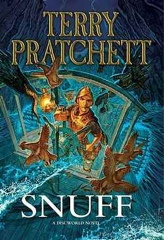By Laurel Beurkes
I've been dithering over this one. The book is good. Lets get that out of the way. Addressed as a mildly post-apocalyptic detective story it works, it flows, it would be well worth reading.
The heroine is seriously flawed, but remains engaging. Her long suffering sloth familiar is one of the most entertaining such creatures out there, easily the nicest beast one might be lumbered with since Pantelimon, though he is certainly less talkative. But what would you expect from a sloth?
So in short: if you're in the mood for a thriller set against a collapsing South Africa where criminals and outcasts are marked by the appearance of a mystically linked but otherwise normal animal, then this could be the book for you. Buy the book.
You might want to think about it a little longer if you're the looking out person who worries about just why people might fund themselves saddled with an animal just because they've stepped outside human norms. There's obviously something supernatural going on, but no-one knows just what. All that matters is that 15 our so years ago people stayed getting animals and with them abilities that feel like, and might even be, minor magical powers.
Like most magical realism that kind of thing kindly bothers me if done badly, and here it's not.
So why am I dithering?
It's South Africa. I don't know how to think about it these days. I don't know what degree of metaphor is here employed.
When I was a kid South Africa was simple. The nasty white people were dominating the blacks, and if only they started paying attention to the Special AKA then it would have a much nice place. And then they let Nelson Mandela out, they won the rugby and it was.
All very simple. Too simple, I know. And it's all got more complicated since then as increasingly less saintly presidents come and go and the stories about rampant criminality grow and grow and one comes to see just why the modern South Africa might feel like a post-apocalyptic wasteland. But probably line where not recent the most hardened criminals get a sloth.
But is that what the author intended? Or just my trying to second guess her motives? I don't know and that worries me. And so I dither.
Good book though. Well worth making your own decision.






